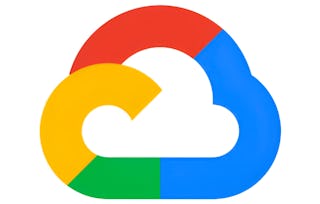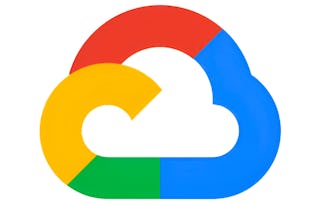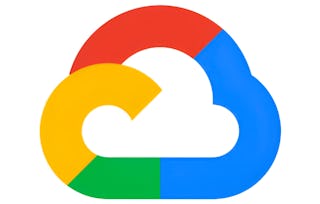This is the first course of a four-course series for cloud architects and engineers with existing Azure knowledge, and it compares Google Cloud and Azure solutions and guides professionals on their use.

Google Cloud IAM and Networking for Azure Professionals

Google Cloud IAM and Networking for Azure Professionals
This course is part of Google Cloud Infrastructure for Azure Professionals Specialization

Instructor: Google Cloud Training
30,127 already enrolled
Included with
(246 reviews)
What you'll learn
Explain how Google Cloud’s resource hierarchy differs from Azure.
Explain best practices for Google Cloud’s IAM, resource hierarchy, including organizations, folders, and projects.
Explain the differences between Google Cloud’s IAM and Azure AD.
Navigate through the Google Cloud console and Cloud Shell to perform basic tasks.
Skills you'll gain
Details to know

Add to your LinkedIn profile
2 assignments
See how employees at top companies are mastering in-demand skills

Build your subject-matter expertise
- Learn new concepts from industry experts
- Gain a foundational understanding of a subject or tool
- Develop job-relevant skills with hands-on projects
- Earn a shareable career certificate

There are 2 modules in this course
In this module, you will draw on your knowledge of Azure to discuss how you can set up your resource hierarchy and configure access in Google Cloud. You will learn how resources get organized with projects, how Identity and Access Management (IAM) lets you control access to resources, and how to use service accounts in Google Cloud. You'll also explore various ways to interact with Google Cloud.
What's included
3 readings1 assignment2 app items1 plugin
In this module, you will apply your knowledge of networking in Azure to explore the similarities and differences with networking in Google Cloud. You will learn about Google Virtual Private Cloud (VPC), routing and firewalls in Google Cloud, and the variety of options Google Cloud offers for connecting networks.
What's included
3 readings1 assignment2 app items
Earn a career certificate
Add this credential to your LinkedIn profile, resume, or CV. Share it on social media and in your performance review.
Instructor

Offered by
Explore more from Cloud Computing
 Status: Free Trial
Status: Free Trial Status: Free Trial
Status: Free Trial Status: Free Trial
Status: Free Trial Status: Free Trial
Status: Free Trial
Why people choose Coursera for their career

Felipe M.

Jennifer J.

Larry W.

Chaitanya A.
Learner reviews
- 5 stars
73.57%
- 4 stars
19.51%
- 3 stars
3.65%
- 2 stars
0.40%
- 1 star
2.84%
Showing 3 of 246
Reviewed on May 9, 2020
had a great experience while doing this course provided by the google.. and learned many google cloud services and functions..
Reviewed on Sep 30, 2021
Clear communication with good practice lab.. feel i am really a student who doing homework & practice also..
Reviewed on Jun 12, 2021
I really like the structure of this course and all the hands-on labs was awesome

Open new doors with Coursera Plus
Unlimited access to 10,000+ world-class courses, hands-on projects, and job-ready certificate programs - all included in your subscription
Advance your career with an online degree
Earn a degree from world-class universities - 100% online
Join over 3,400 global companies that choose Coursera for Business
Upskill your employees to excel in the digital economy
Frequently asked questions
To be eligible for the free trial, you will need:
- Google account (Google is currently blocked in China)
- Credit card or bank account
- Terms of service
Note: There is a known issue with certain EU countries where individuals are not able to sign up, but you may sign up as "business" status and intend to see a potential economic benefit from the trial. More details at: https://support.google.com/cloud/answer/6090602
More Google Cloud Platform free trial FAQs are available at: https://cloud.google.com/free-trial/
For more details on how the free trial works, visit our documentation page: https://cloud.google.com/free-trial/docs/
If your current Google account is no longer eligible for the Google Cloud Platform free trial, you can create another Google account. Your new Google account should be used to sign up for the free trial.
View this page for more details: https://cloud.google.com/free-trial/docs/
More questions
Financial aid available,

